President’s update – Election survey, your influence and Ahpra complaints
In his latest President’s Update, Associate Professor Peter Subramaniam shares insights from a recent member survey that will guide AMA SA’s advocacy in the lead-up to the state election. He also reflects on a visit to Port Lincoln, where he gained a deeper understanding of the pressures facing rural health services, and discusses ongoing concerns raised with Ahpra around regulatory delays and the emotional toll of complaint-handling.

It’s now less than five months until the state election on 21 March, and AMA SA is busy formulating the priorities we’ll take to all sides of politics. The member survey many of you completed helped sharpen our focus. You told us the following issues are either extremely important or somewhat important to you and your colleagues:
- Constructively addressing ramping / keeping people out of hospital
- Building the health workforce
- Rural health services
- Mental health services
- Preventative health
- Ageing with dignity / end-of-life care
- Physical safety in health workplaces.
I’m now working with AMA SA Council and staff to hone and formalise specific aspects of our election platform. I look forward to sharing more with you in the weeks ahead as we refine the details.
Your voice, your influence
As that process gains pace, AMA SA continues to speak directly with decision-makers. Two weeks ago, I sat down with the Minister at our regular monthly meeting, and last week, I met with Shadow Health Minister Ashton Hurn. Both the government and the opposition must recognise the importance of consulting with the experts when determining the health policies and platforms that they will take to voters.
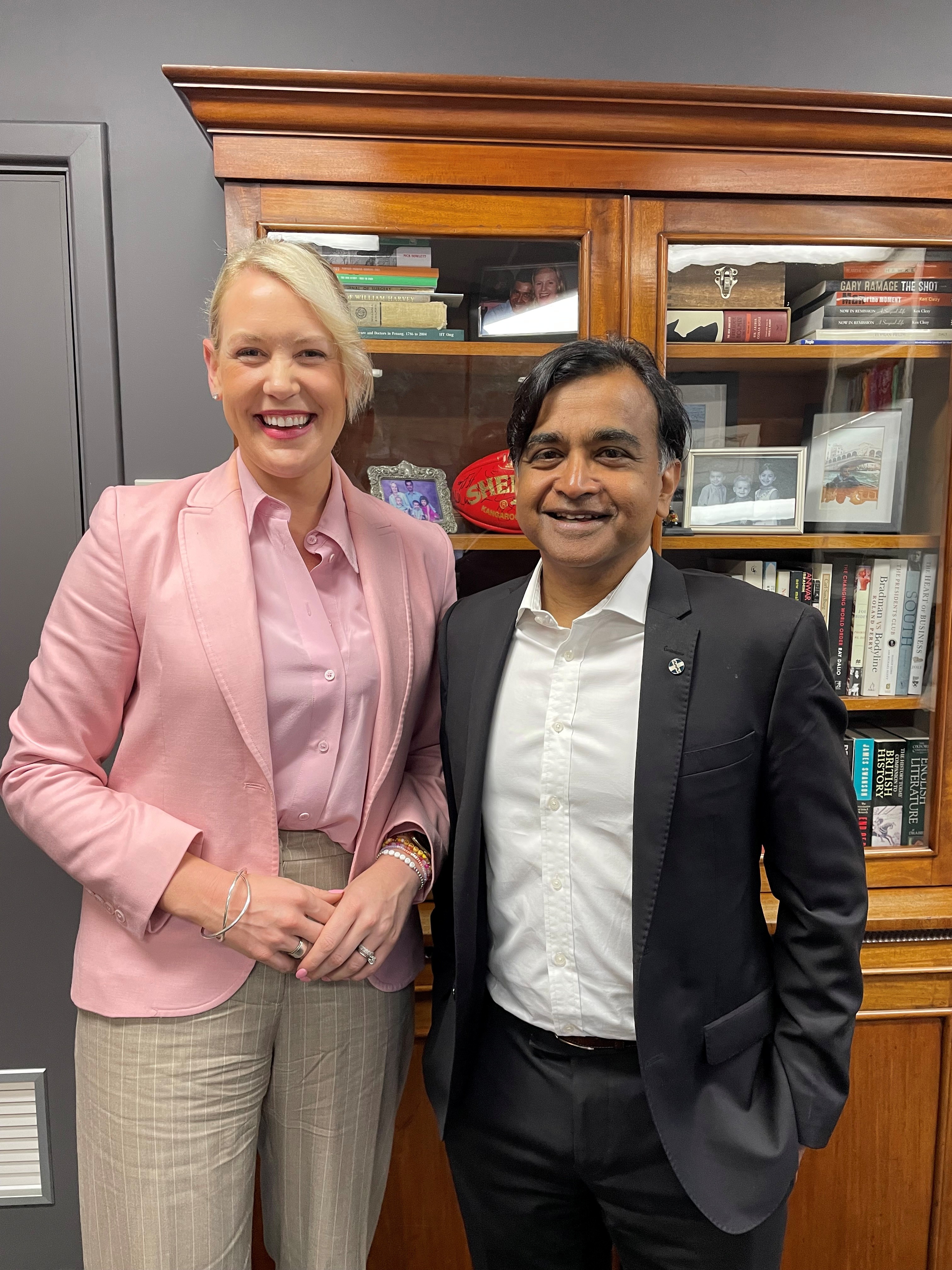
Insights from the regions
In the lead-up to the election, I’m also eager to continue talking to you, our members, about the issues that affect you. Last week I travelled to Port Lincoln to listen, learn and see first-hand the realities of delivering care in that beautiful area of our state. I was hosted and supported by local GP and AMA SA’s Immediate Past President Dr John Williams.
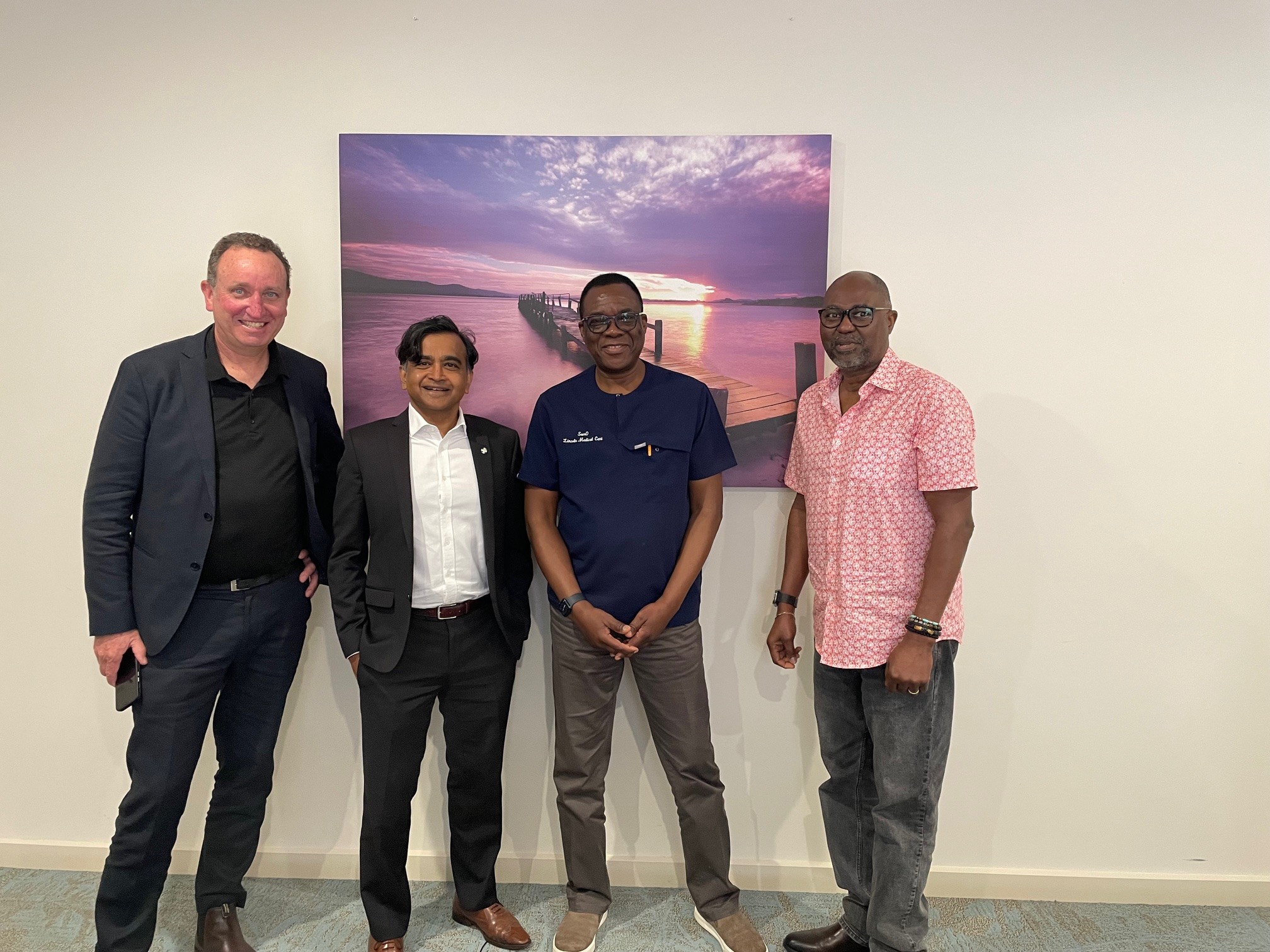
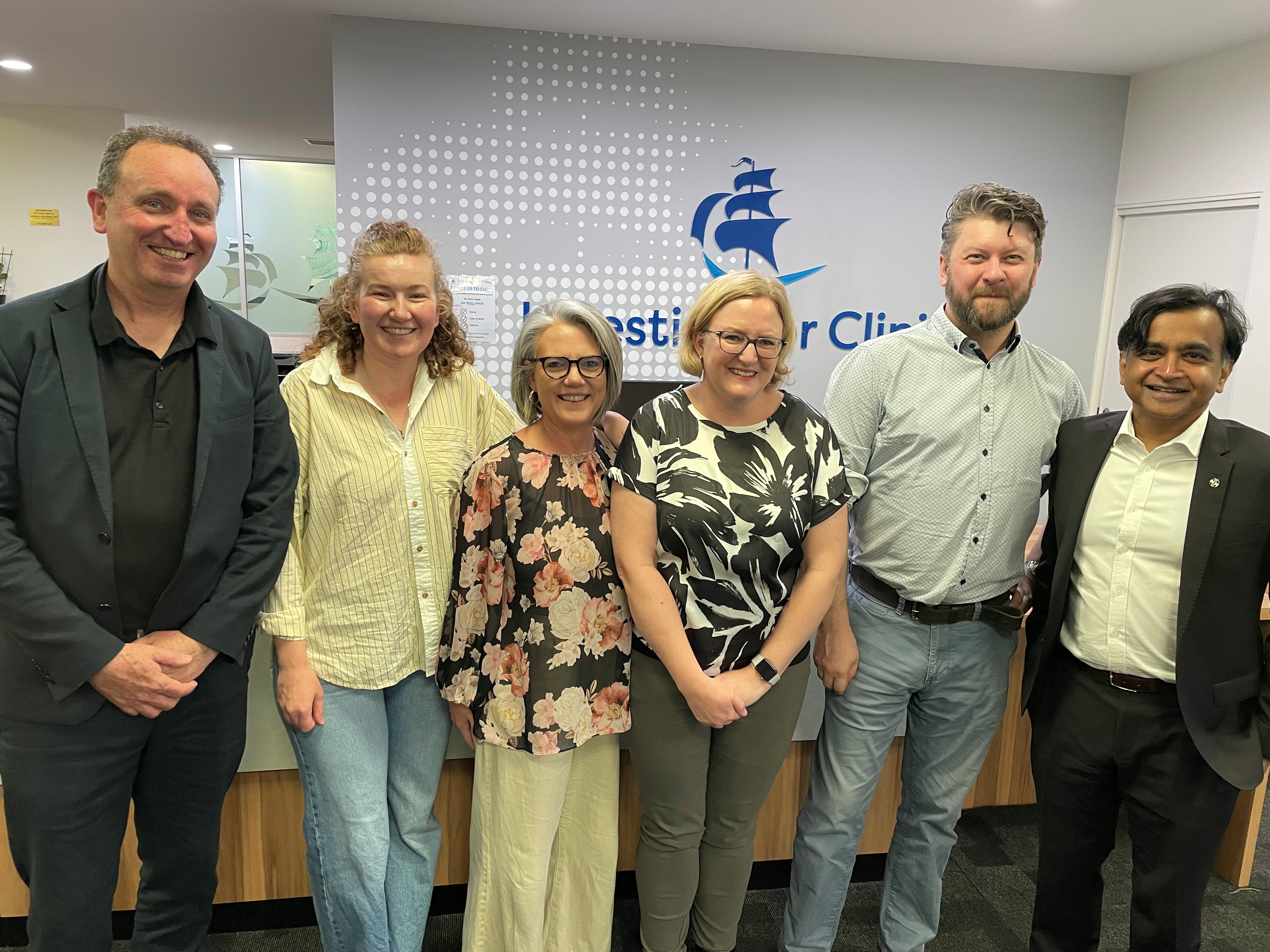
I was fortunate to meet a deeply committed group of ‘local’ GPs who hail from Nigeria, Zimbabwe, Ukraine, Germany, South Africa and Brazil. We discussed the vital role of international medical graduates (IMGs) in providing healthcare to rural communities. Many of the IMGs I met have been serving the community for more than 15 years, as GPs and as hospital clinicians and rural specialists in anaesthetics, obstetrics and emergency care.
I also visited the Port Lincoln Hospital and spent time with my colleague Dr Quentin Ralph, the resident general surgeon in Port Lincoln, who spoke candidly about the limitations of expanding surgical services at the regional hospital – and, importantly, shared thoughtful ideas to address those limitations.
Conversations with the Indigenous health team from the Eyre and Far North Local Health Network highlighted the importance of training on Country, while Port Lincoln Mayor Diana Mislov spoke passionately about preventative health and developing pathways for vulnerable young people.
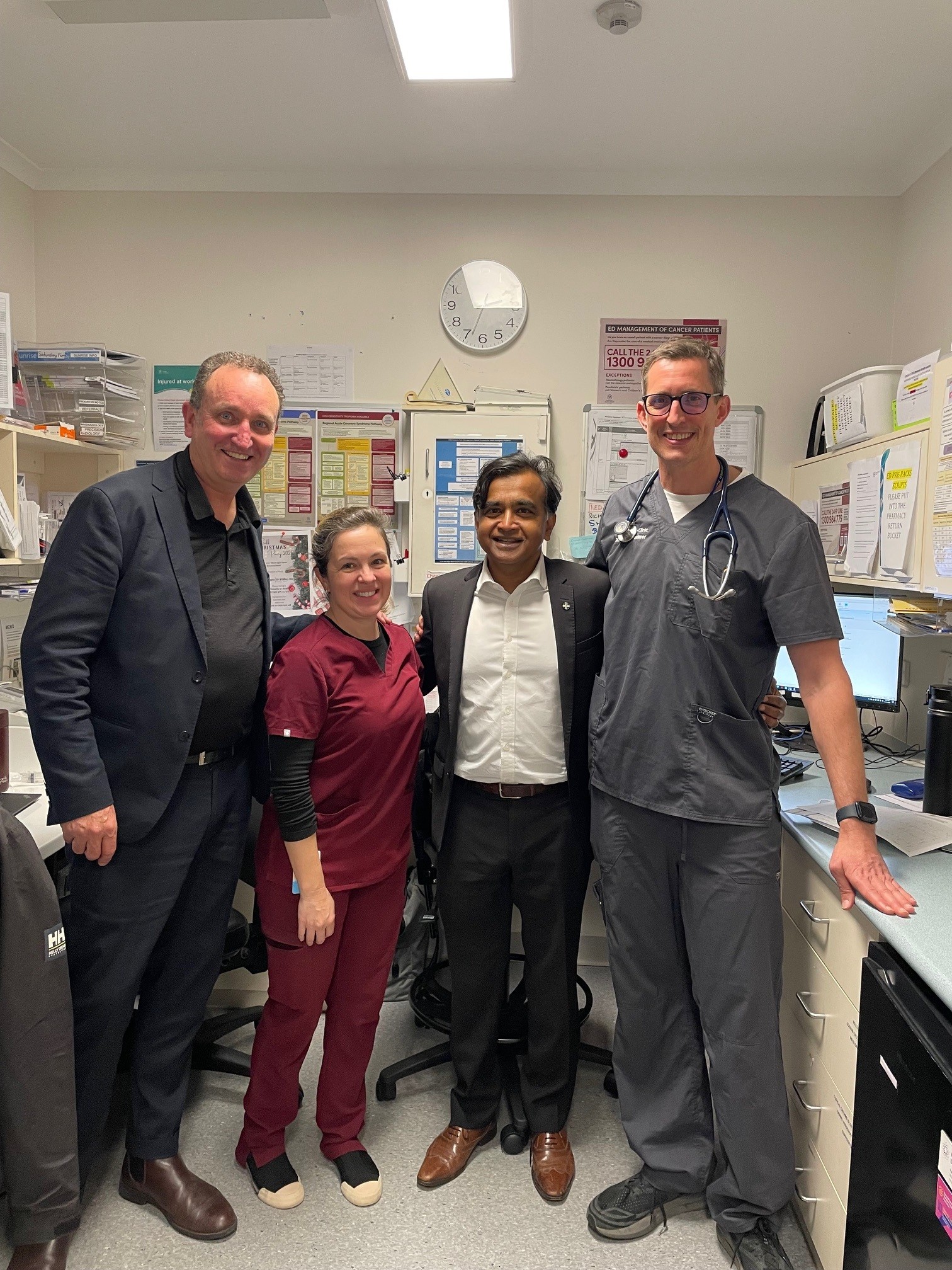
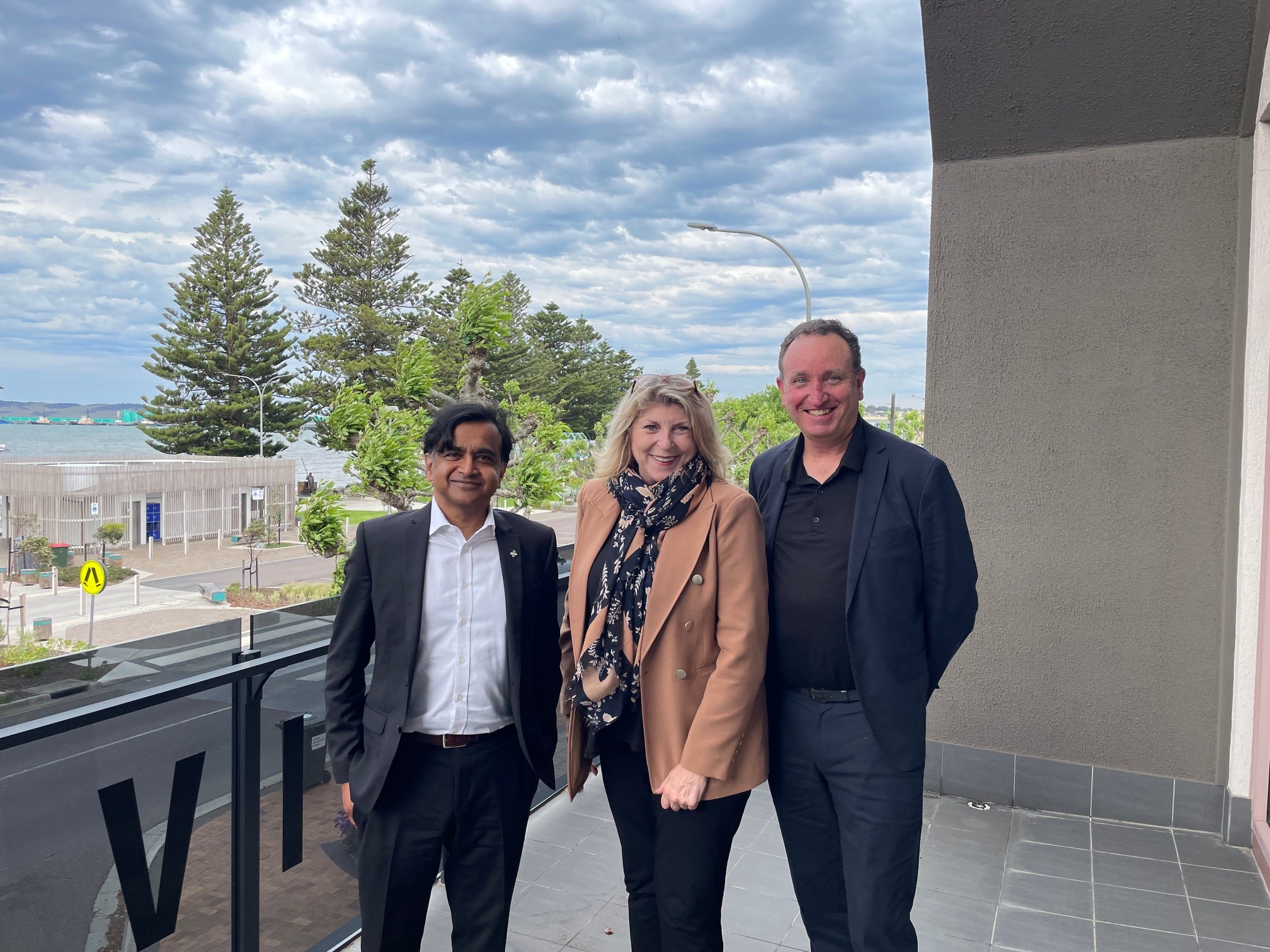
Every discussion reinforced the dedication of local healthcare professionals and community leaders and the systemic challenges they face: workforce shortages, limited access to specialists, and the structural gaps that continue to strain our health system.
AMA SA will keep calling for all parties to release and commit to detailed, costed pre-election policies that make regional healthcare a priority.
Meeting with Ahpra
This week, I had my scheduled quarterly engagement with Ahpra and the Medical Board of Australia Chair. I highlighted member concerns about regulatory delays and the stress arising from complaint-handling, referencing the recommendations of the recently released Dawson Report. Some progress has been evident in oversight, triage and the audit of aged investigations, but pressures remain from increasing notification volumes and delays. Doctors should not have to bear the burden of delays in the process. The Board is reviewing statutory right of appeal and dedicated practitioner support measures. We will continue to advocate for ongoing alignment between regulatory decisions and workforce realities.
Additionally, I raised the challenges faced by IMGs particularly barriers to their rural deployment created by current supervision requirements, lengthy assessment backlogs and unclear registration pathways. AMA SA argued for more flexible, context-driven supervision; faster PESCI (pre-employment structure clinical interviews) and exam processes in workforce-shortage regions; and better coordination between state health departments and regulatory bodies.
Connecting with doctors
I appreciated the invitation to visit the Corporate Health Group (CHG), which showed me its Mile End facility. There is clear evidence in the preventative health literature that personal and workplace health is foundational to community wellbeing and productivity. It was very instructive to connect with the members of the CHG clinical teams.
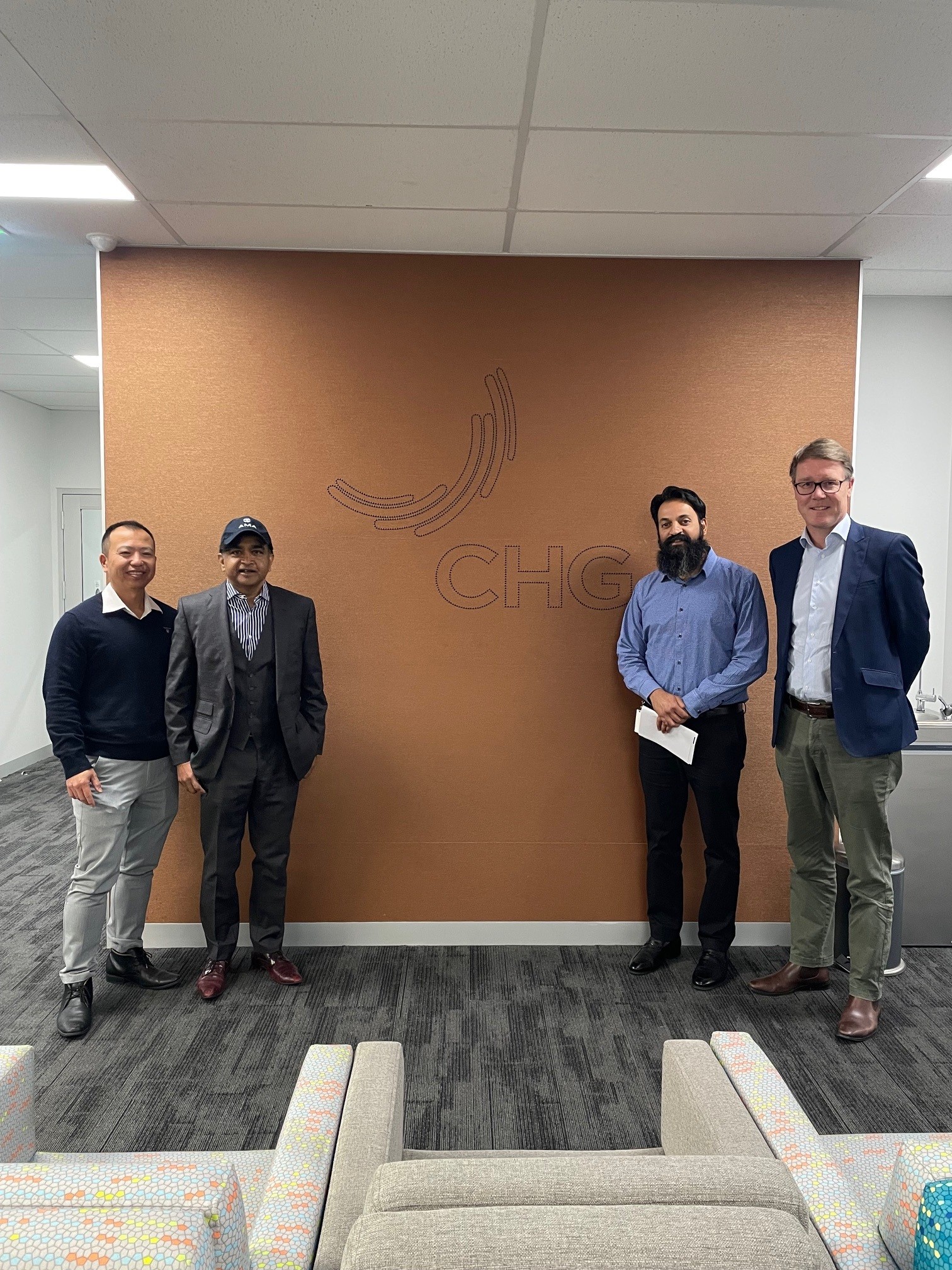
I will continue to do my best to connect with AMA members and doctors in the community – across both regional and metropolitan areas – in the months ahead. Your concerns and challenges, and especially your proposed solutions, will help inform the AMA SA advocacy.
If you have thoughts or experiences to share, I’d love to hear from you: president@amasa.org.au.